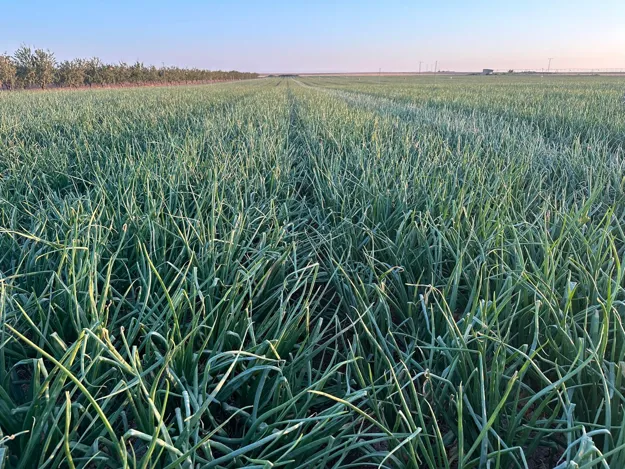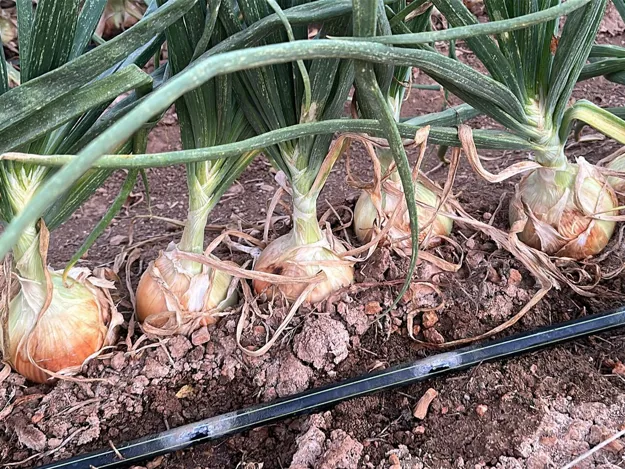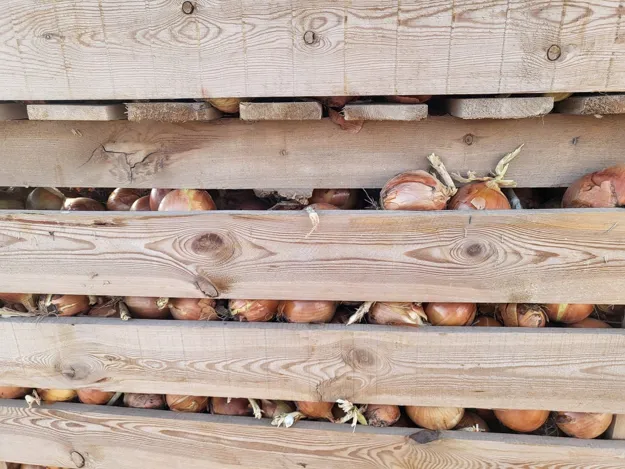According to Fermín Utrilla, from Biodiversa, the onion acreage in Castile-La Mancha is expected to shrink compared to previous years due to the high rental prices of land for cultivation and the higher costs of electricity, diesel, fertilizers, etc. "The sector expects normal yields; Albacete, an average of around 65 t/ha, and Ciudad Real expects even more, also with larger calibers, because in general, in Albacete they will be medium. As far as yields are concerned, Ciudad Real's figures almost double Albacete's, as soil fatigue is much less of an issue there and almost all onions grown there are transplanted and have access to localized irrigation."

"The main quality issue in all areas has been that of onions bursting open. Those onions end up going to the processing industry, because they are not suitable for the fresh market, and a high percentage of onions are discarded for this very reason. As far as health is concerned, onions have generally done good and there is less Botrytis than in other years, but as always, in the area of Ciudad Real, where transplanting is used, there's a higher share of onions with Fusarium," said Fermín.
"Prices have remained stable so far, with onion growers receiving between 0.4 and 0.5 €/kg, depending on calibers, but a downward trend is observed, and today we are already seeing instances of 0.38 €/kg. However, despite these prices, stocks have remained low, especially since April, since the cold storage goods ran out and very little onion has been sown in temperate areas such as Andalusia. Therefore, practically everything harvested in the different areas has been sold quickly. In July, there was a small break tp this trend, coinciding with the harvest of Medio Grano onions in Ciudad Real, but later, at the end of July, there was a gap in the supply due to a shortage of onions caused by a severe mildew infection.

"Prices rebounded and since then the demand has been exceeding the supply. It should also be said that, due to the delay in the European harvest, quite a lot of onions have been exported, for example, to the United Kingdom, during the summer," said Fermín. This also prevented the accumulation of stock.
When it comes to storage, uncertainty is quite high at the moment. "How the latest September rains will affect the storage capacity and suitability is still unknown. We cannot forget that, in the Madrid area, the storms caused severe damages in quite a large area and that the onions grown there won't be suitable for storage."
Will onion prices remain at the same levels as they have so far?
"Until now, the supply and demand have stayed sufficiently in balance for prices to remain stable, but I think that the price increase that helped compensate for the costs of the entire chain, and which has allowed everyone to maintain acceptable margins, will be maintained."
"This year, even Dutch onions have been more expensive than ever. The country has always differentiated itself by being able to deliver its goods at very competitive prices and has been able to collaborate with Africa and poorer countries, but that seems to be over."
"I see a paradigm shift in the onion market. Not everything is cheap anymore, and the consequences of this are very positive for all operators, from the field to the supermarkets, as the rising costs and the disastrous impact of drought are being reflected on the final price."
"Also, we cannot forget that, in the field, between 30 and 40% of the production may need to be discarded, with even higher figures in the case of organic producers, and that, regardless of our desires, we are forced to obey the rule of the shoppers, who reject any product without a perfect appearance, and their decisions generate huge tensions down the chain."

"An example of this is what is happening with garlic this season; even though the product offers the same quality as usual and it is consumed peeled, it is being rejected just because of some spots on the skin, so producers and marketers are having a very difficult season," says Fermín.
For more information:
Fermín Utrilla
Biodiversa
[email protected]










